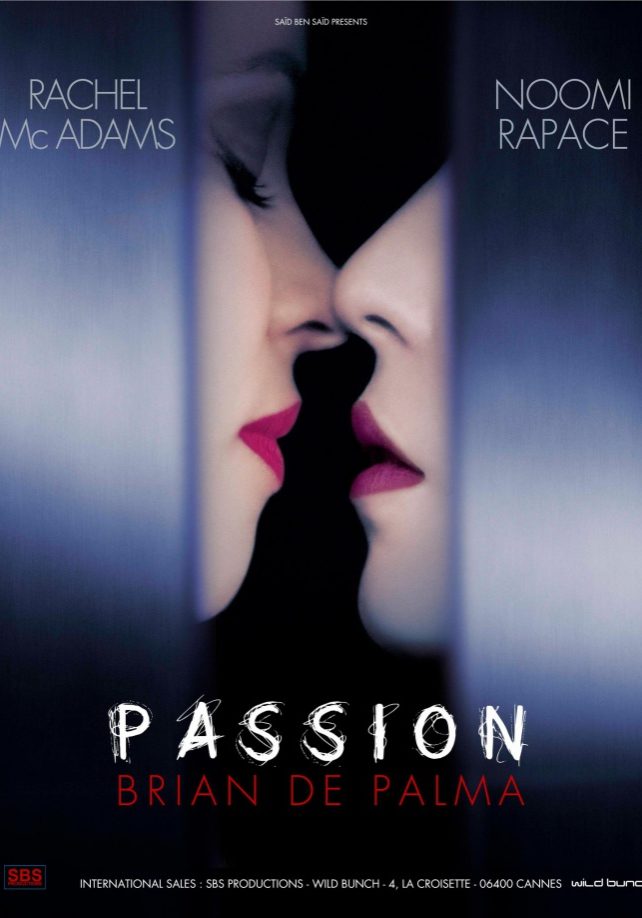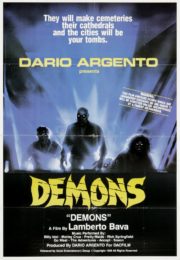Through the Looking Glass of Power: A Labyrinth of Deceit
Before diving into the depths of psychological terror, one must clarify an essential detail: the film “Passion” released in 2012, directed by Brian De Palma, is not a traditional horror movie but a twisted and menacing foray into the realm of thriller and suspense. Reminiscent of the works of Alfred Hitchcock, De Palma weaves a narrative that blurs the lines between ambition, seduction, and betrayal. The film stars Rachel McAdams and Noomi Rapace as two women entangled in a corporate power struggle that spirals into deceit, revenge, and murder, raising the question: “How far would you go to get to the top?”
Shadows of Suspicion: Crafting the Atmosphere
The atmosphere of “Passion” is less about outright terror and more about the tense, claustrophobic air of corporate intrigue and personal vendettas. The film’s horror originates from the psychological manipulation between the characters, creating a sense of foreboding that is palpable from the first frame. De Palma meticulously constructs scenes to draw viewers into this web of uncertainty, using long takes and close-ups that heighten the feeling of confinement and paranoia.
Visual Mastery: The De Palma Signature
Noteworthy is the cinematography of “Passion,” where De Palma’s penchant for stylized visuals comes to the fore. The film uses a distinct color palette with stark contrasts, underlined by the sophisticated yet cold corporate interiors juxtaposed with the more vibrant elements of the characters’ personal lives. The camera angles are deliberate, often positioned to create a sense of voyeurism or disorientation—hallmarks of De Palma’s directorial style.
The movie’s elegance doesn’t stop at its imagery; the accompanying soundtrack echoes the visual beats, often employing a minimalist approach where silence serves as a looming threat. The sporadic use of discordant notes and subtle sound effects amplifies the tension, making the moments of revelation all the more jarring.
Playing the Part: Performances that Chill
In “Passion,” the performances are pivotal. Rachel McAdams is capriciously charming yet sinister, embodying a corporate leader who toys with her prey, while Noomi Rapace delivers a nuanced portrayal of vulnerability and resilience. The authenticity of the characters’ reactions to their slowly unraveling worlds is a testament to their acting skills, adding a layer of believability to the psychological horror unfolding on screen.
The Horror in the Mind: Psychoanalyzing “Passion”
This movie is entrenched in psychological terror rather than typical genre staples such as supernatural entities or gore. The horror mechanics are mind games, the constant push and pull of power dynamics, and the corruption of relationships. The film subtly defies genre conventions by presenting a sort of “office noir,” coupled with a Hitchcockian suspense and a modern erotic thriller vibe.
As a vessel for delivering frights, “Passion” relies heavily on psychological implications and the anticipation of betrayal. Although there are a few visceral moments for shock value, the true horror lies in the betrayal of trust and the descent into madness.
De Palma’s work is ripe with themes of identity, duality, and the loss of self in the cutthroat corporate world. These underlying messages speak to a broader commentary on modern society’s obsession with success at any moral cost, adding depth to the film’s narrative.
Final Screening: The Verdict on “Passion”
“Passion” may not deliver traditional jump scares, but it is successful in creating a gripping, stylish psychological thriller with a sinister edge. It may resonate more with those appreciative of character-driven stories and complex plots, rather than viewers seeking straightforward horror.
Fans of Brian De Palma’s work or admirers of Hitchcockian suspense will find much to enjoy in its intricate design. However, it may not satisfy those in search of supernatural frights or a fast-paced gore fest.
In conclusion, “Passion” stands as a sleek and cerebral thriller with a delectably dark heart. While it has its flaws—occasionally feeling too self-indulgent in its stylization—its strengths in performance and direction make it a fascinating watch. Viewer discretion is advised due to its sexually explicit content and psychological intensity. Those willing to explore the darker corridors of ambition and revenge will find “Passion” a tantalizing, if not conventionally horrifying, experience.




